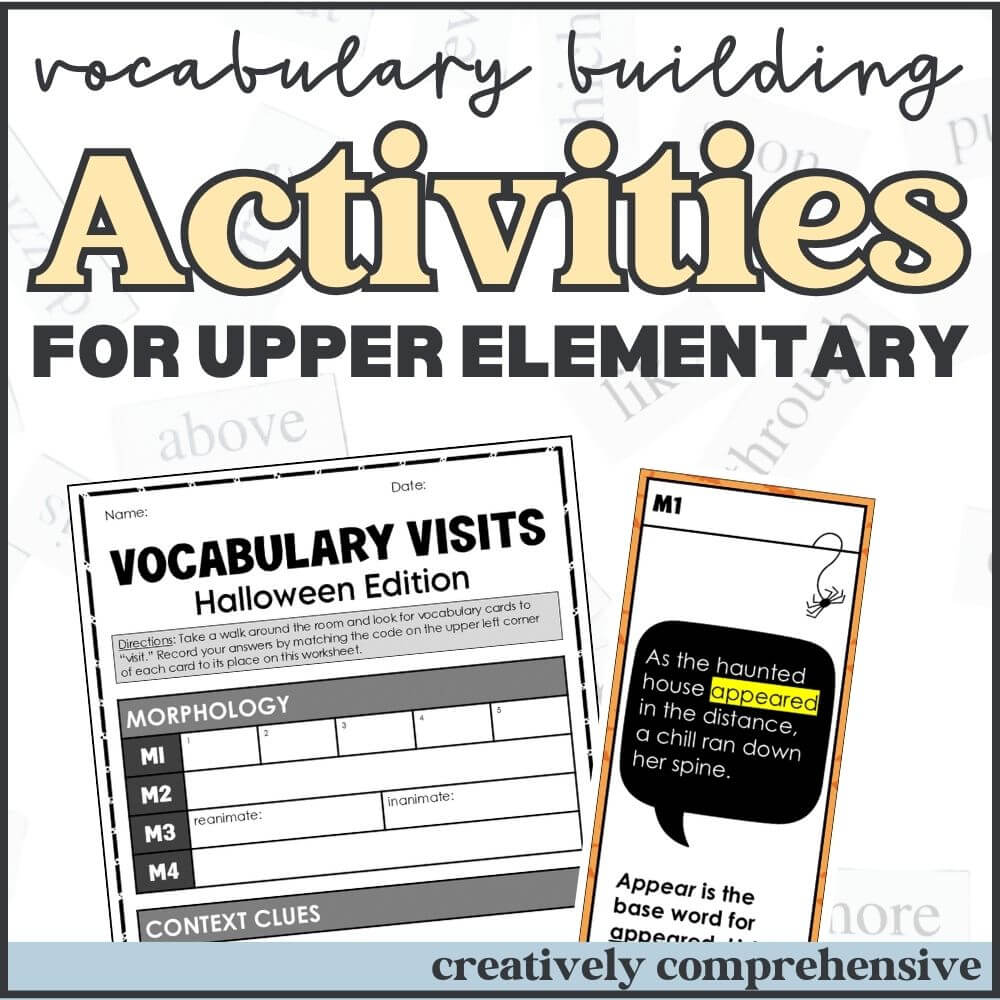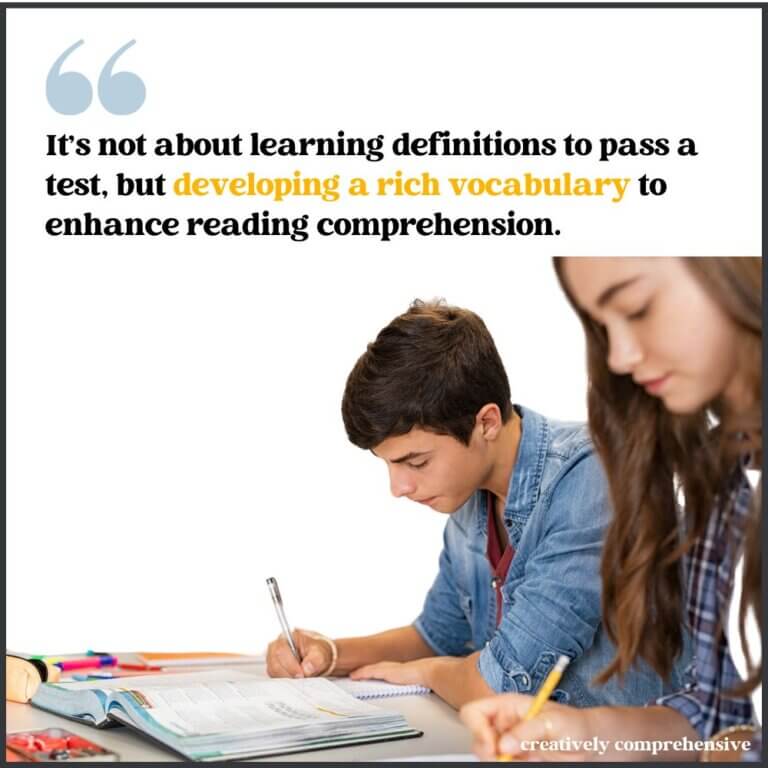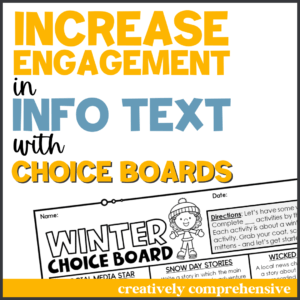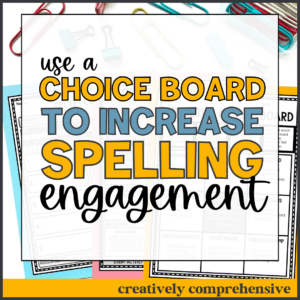By Marianna Monheim – Updated October 3rd, 2024
Building a strong vocabulary is essential for upper elementary students as they transition into more complex reading and writing tasks. At this stage, students are ready to expand their word knowledge beyond basic definitions, diving into deeper understanding and usage. But let’s face it—for many students, vocabulary just isn’t that interesting. That’s why incorporating fun, interactive activities can make all the difference. Whether through games, group projects, or creative writing exercises, these vocabulary-building activities will inspire students to learn more about words and their meanings!
No time to read? This low-prep write-the-room activity for big kids will have your students begging to play again and again!
Table of Contents
The Importance of Vocabulary Building in Upper Elementary
Vocabulary development is a cornerstone of literacy in upper elementary grades. It’s not about learning definitions to pass a test, but developing a rich vocabulary to enhance reading comprehension. As students start to engage with more complex material, they benefit from a larger mental word bank that will help them understand the nuances of the text.
Vocabulary building helps students make connections between words and their meanings, use context clues to decipher unfamiliar terms, and apply new vocabulary in a variety of settings. These skills are necessary for their continued development as readers and writers in upper elementary, middle school, and beyond.
Active Learning Enhances Vocabulary Building
When it comes to building vocabulary in upper elementary students, variety is key. Different strategies can target different aspects of vocabulary learning, ensuring that students not only remember new words but also understand how to use them effectively.
One of the most effective approaches is active learning. Encourage students to engage with new vocabulary by using it in sentences, stories, or discussions. Active participation helps solidify their understanding of words in context, moving beyond rote memorization.
Here are some quick ways to incorporate active learning into your vocabulary instruction:
- Choose a word from a sentence. Ask students to find different words with the same root. Extension- have them discuss how word parts such as prefixes or suffixes can change the meaning of a word.
- Choose a word from a sentence. Ask students to replace the word with one that has a similar meaning.
- Choose a Greek or Latin root. Ask each student to think of a word with that particular root. Compile a list to see how many unique words the class can come up with.
Using Write the Room to Build Vocabulary...Yes, for Older Kids!
“Write the Room” is an activity often associated with younger students, but with a few tweaks, it can be an incredibly effective vocabulary-building tool for upper elementary students as well. The concept is simple: students move around the classroom searching for words or phrases that have been strategically placed in various locations. Once found, they record the words and apply them in some way.
For my “Vocab Visits” activity, students move around the room to apply morphology, context clues, word parts, and figurative language clues to sentences built around a theme.
Upper elementary classrooms can be just as full of energy and activity as the primary grades! The physical movement involved in “Write the Room” not only energizes students but also helps solidify their learning by engaging different modes of cognition. This kinesthetic element is particularly effective in helping older students stay focused and retain information better. Purposeful movement for the win!
Vocabulary Building with Games
Don’t overlook the power of simple games when it comes to increasing vocabulary proficiency. Games are one of the most effective ways to make vocabulary learning fun and engaging for upper elementary students. By incorporating play into vocabulary lessons, students can practice new words without the pressure of traditional learning environments, making it easier for them to absorb and apply what they’ve learned.
Board games, such as Scrabble or Boggle, challenge students to create words from random letters, expanding their vocabulary in a playful, competitive setting. These games require critical thinking, as students need to strategize around limited letter combinations while exploring word meanings.
Card games like “Go Fish” can be adapted for vocabulary practice, where students match cards based on synonyms, antonyms, or definitions. This playful approach ensures repetition, allowing them to internalize word meanings through repeated exposure in a relaxed, enjoyable context.
Take a quick poll to see what kinds of games your students enjoy, then brainstorm ways to incorporate vocabulary. These could work as small group activities, too.
Integrate Vocabulary Building All Day Long
Building vocabulary with upper elementary students doesn’t have to be dull or repetitive. Using interactive strategies like “Vocab Visits” and incorporating games can bring vocabulary lessons to life, keeping students active and engaged. These approaches make learning feel less like work and more like fun, all while reinforcing important language skills. Whether through active participation, creative play, or everyday classroom routines, these methods help students develop a solid vocabulary foundation that will support them across subjects and beyond the classroom.






